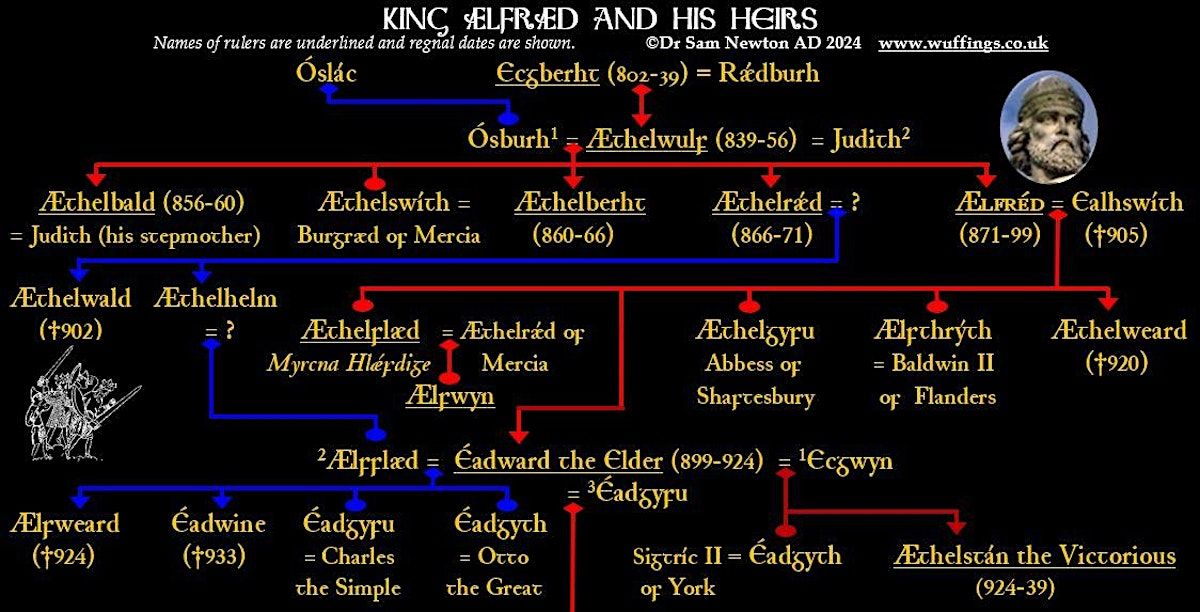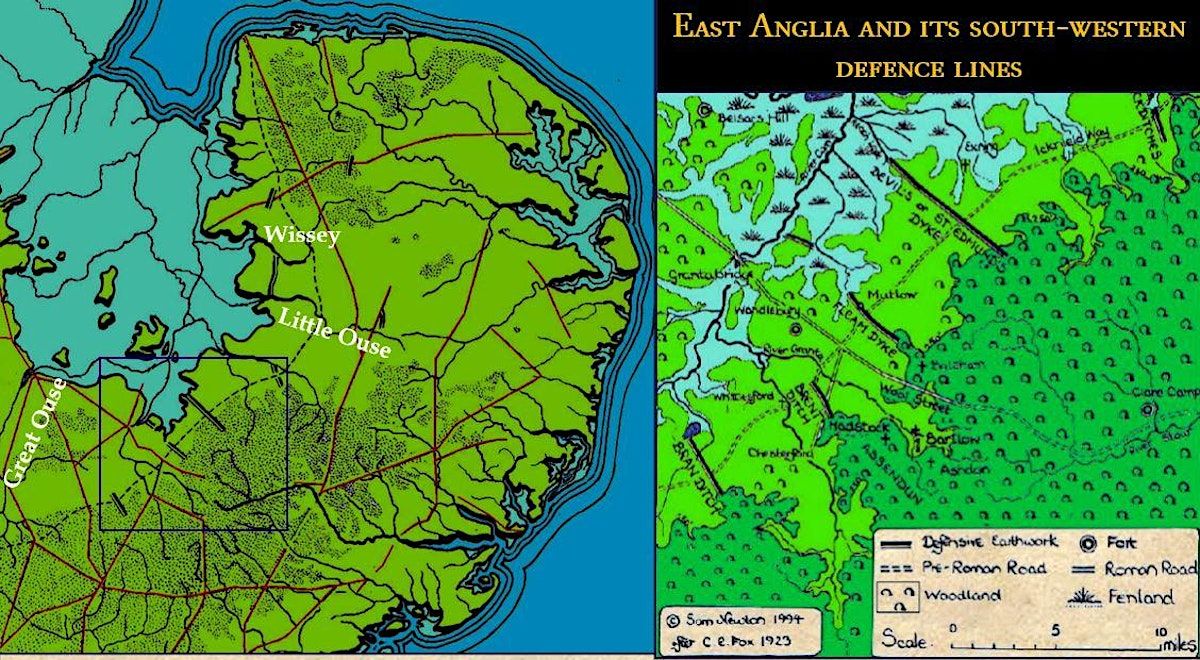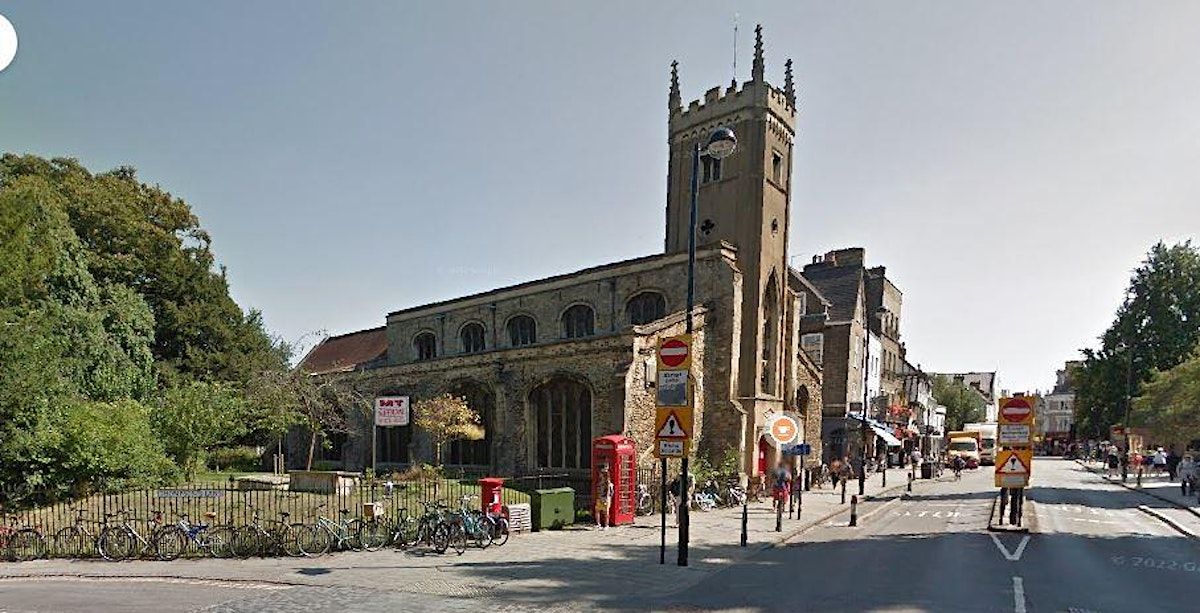The Battle of the Holme (13th December 902) - online with Dr Sam Newton FSA
Schedule
Fri Dec 13 2024 at 10:15 am to 01:00 pm
UTC+00:00Location
Online | Online, 0

About this Event
Title-picture above: Looking south-east along the line of the old East Anglian defence work, formerly known as St Edmund's Dyke, now the Devil's Dyke, which the Danish army held successfully against the West Saxon counter-offensive in 902 (©Dr Sam Newton 8th September 2012 / 2024). For the wider landscape context, see the sketch-maps further below .
The Battle of the Holme (13th December 902) - an online 1122nd anniversary study-morning with Dr Sam Newton FSA
The battle of the Holme nearly destroyed the legacy of King Ælfred. Following his death in 899, his nephew Æthelwald, son of his elder brother Æthelred, challenged his will by openly opposing the authority of Ælfred's son and heir Eadward ("the Elder", leading to the West Saxon Cousins' War.

The Anglo-Saxon Chronicle provides a dramatic account of how Eadward besieged his cousin in his base at Wimborne, before Æthelwald escaped and sailed off to join the Danes, who accepted him as king. He then led them in a great raid into northen Wessex. Edward came after them in hot pursuit but was unable to overtake them before they had reached the safety of the old East Anglian defence-lines (see sketch-maps below). Eadward's army then dispersed to harry Danish Cambridgeshire but the Danes counter-attacked, leading to the battle. The Danes appear to have won, but the casulty list was severe on both sides. Fortunately for Eadward, his cousin Æthelwald was among the dead, so his succession was thus secure enough for him to build on his father's legacy.
We shall examine the clues provided in the Anglo-Saxon Chronicle pointing to the site of the battle somewhere in Cambridgeshire, perhaps close to the Danish base in Cambridge itself.
Below: Sketch-maps showing the location in the landscape of the linear earthworks built as part of the formation of the old kingdom of East Anglia in the fifth or sixth centuries. These were the still viable defence-lines in 902, behind which the Danish army retreated safely (©Dr Sam Newton 1994, 2002, 2024).

Below: Looking south east along the line of the Fleam Dyke towards the wooded higher ground(©Sam Newton 1988).

Provisional Timetable
10.15–11.15: King Ælfred's Will.
11.15-11.45: coffee break
11-45-13.00: The West Saxon Cousins' War and the Battle of the Holme.
Below: St Clement's Church, Cambridge, one the possible locations of the Battle of the Holme on 13th December 903 (thanks to Google Street View 2022 for this picture).

About Dr Sam Newton
Sam Newton was awarded his Ph.D at the University of East Anglia in 1991. He published his first book, The Origins of Beowulf and the pre-Viking Kingdom of East Anglia, in 1993, and his second, The Reckoning of King Rædwald, in 2003. He has also published several papers, some of which are available on his website or on Academia.
He has lectured widely around the country and abroad for over thirty years and has contributed to many radio and television programmes, especially Time Team (now back in business as Time Team Digital). He is Director of Wuffing Education and a Fellow of the Society of Antiquaries.
Some Suggestions for Optional Background Reading
- Abels, R. P., Alfred the Great: War, Kingship and Culture in Anglo-Saxon England (London 1998).
- Carroll, J., Harrison, S.H., & G. Williams, The Vikings in Britain and Ireland (London 2014).
- Hart, C., The Danelaw (Hambledon 1992).
- Keynes, S., & M. Lapidge (ed. & tr.), Alfred the Great: Asser’s Life of King Alfred and other contemporary sources (Penguin Classics 1983).
- Smyth, A., Scandinavian York and Dublin (Dublin 1975).
- Smyth, A., King Alfred the Great (Oxford 1995).
- Stenton, F., Anglo-Saxon England (Oxford 1971).
- Swanton, M., The Anglo-Saxon Chronicle (Dent 1996; Phoenix 2000).
- Williams, G., Anglo-Saxon vs Viking Warriors, AD 865–1066 (Oxford 2017).
What happens next:
When you book tickets, it is essential that you open an account for yourself on Eventbrite at the same time (if you haven't already done so). Do not book via the anonymous 'guest account' option.
This is because of the way in which Eventbrite works with Zoom - without an account, it won't let you sign in to join the study-day on Zoom.
After booking you will receive a confirmation email. The essential Zoom link will follow on the morning of the study-day.
It's a good idea to have set up and tested your Zoom configuration well in advance and be aware of how to use the controls. There is guidance and a test link here. Please also check for updates to both Zoom and Eventbrite.
If you would like to keep informed about Wuffing Education study-days, click on the 'Follow' button in Eventbrite Wuffing page to hear details about our events as soon as they are published.
And you can click here to receive our occasional despatches about forthcoming events with Wuffing Education.

Where is it happening?
OnlineGBP 20.00

















